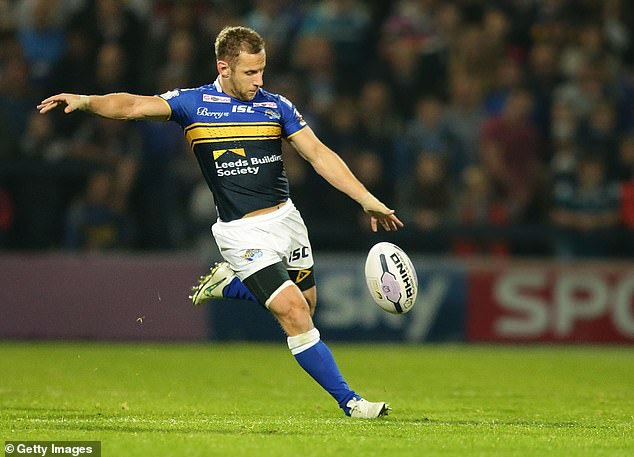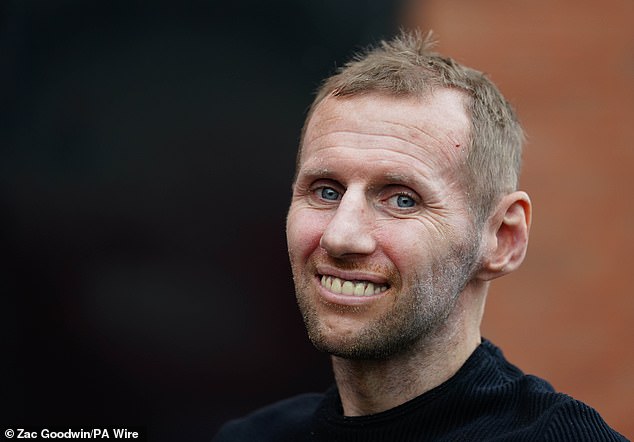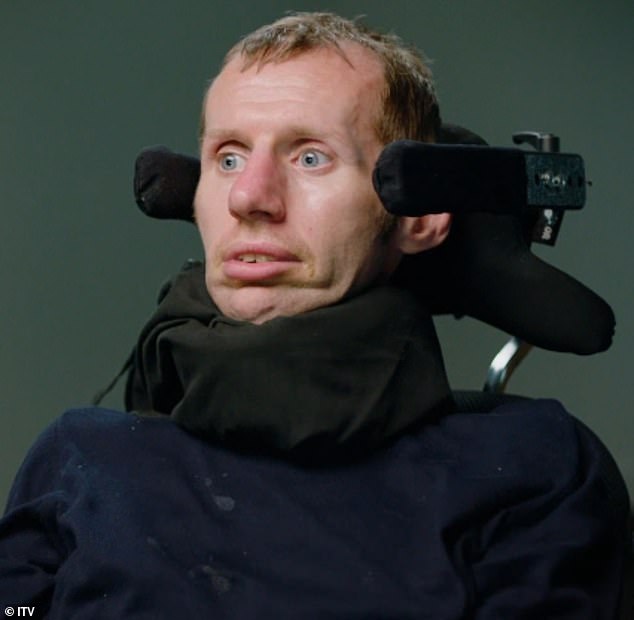Table of Contents
Rugby legend Rob Burrow’s first symptom was difficulty speaking, which occurred while attending an awards ceremony.
Within weeks, the otherwise fit and healthy athlete had been breaking the crushing news that he was suffering from motor neurone disease (MND).
Burrow, father of daughters Macy and Maya, and son Jackson, died this week after a five-year battle with the incurable disease, having dedicated his final years to campaigning for greater awareness.
MND is a rare neurological condition that damages the nervous system over time, causing difficulties with walking, talking and breathing as the condition progresses. It is not fully understood why it happens and there are no effective treatments to stop its cruel march.
Around 5,000 adults in the UK suffer from MND and there is a one in 300 risk of developing the condition in a person’s lifetime. Here, MailOnline looks at the early warning signs of this fatal condition…
Rob Burrow opened up about his battle with motor neurone disease in ITV documentary Lindsey and Rob: Living with MND

Burrow playing for the Leeds Rhinos. Friends made while playing for the team have played an important role in raising awareness for MND and former teammates have completed challenges to raise money.
Muscle spasms
Muscle spasms and cramps are among the first signs of NMD.
This may also feel like a rippling sensation under the skin, according to the Motor Neurone Disease Association (MNDA).
However, spasms alone are not usually associated with neurological conditions such as MND, unless you have other symptoms present, the charity explains.
It can also occur with fatigue, stress, viral infection or general poor health.
Some tremors and twitches are normal and can be caused by caffeine, stress, and age.

Rob posing with his wife Lindsey (left), his oldest daughter Macy (back right), his second daughter Maya (front right), and his son Jackson (sitting on the arm of the wheelchair)

The rugby legend spent his entire career at the Leeds club and made more than 400 appearances between 2001 and 2017 before his shock diagnosis in 2019.
Exhausted
This condition can make you feel lethargic and very tired.
MND is caused by a problem with brain and nerve cells called motor neurons.
These cells gradually stop working over time, but it is not known why this happens.
However, the MNDA says that fatigue usually occurs once other symptoms of MND become more obvious.
Weakness in the ankles or legs.
Tripping, falling, and having more difficulty climbing stairs can be a sign of MND.
This is because the condition can cause muscle weakness in the ankles and legs.
When a muscle weakens, it usually reduces in size, also known as atrophy.
“Foot drop” can be an early symptom of MND, where a foot sometimes feels weak or drags, according to MNDA.
But it is important to remember that this could also be due to an injury or other condition, but should still be examined by your GP.

The rugby star won the Challenge Cup at Wembley in 2014 and 2015, as well as three World Club Challenges and three League Leaders Shields.
Weak or stiff hands
Dropping things due to weak or stiff hands could be a warning sign that you have a neurological problem.
As well as causing weakness in the ankles and legs, MND can cause a weak grip, making it difficult to open jars, fasten buttons and even hold objects, the NHS says.
However, stiff hands or a weak grip can also be an indication of age-related joint problems or a trapped nerve.
slurred speech
Slurred speech is an early warning sign of NMD.
This is because people with MND suffer from weakness in the muscles of the face, mouth, tongue or throat.
This can also cause difficulty swallowing food, the NHS adds.
It can also affect the volume of your speech, according to MNDA.
The charity explains that weak speech can occur if you feel breathless and cannot handle the volume of your speech.

Rob Burrow joined his wife Lindsey (who ran the half marathon), daughters Macy and Maya, and Kevin Sinfield last year to raise awareness about Burrow’s condition.
emotional outbursts
The condition not only affects the muscles, but also the mind.
Because it is caused by a problem with brain cells and nerves called motor neurons, it can also change the way you behave and think.
In fact, up to half of people diagnosed with MND experience these changes, according to MNDA.
It can make it harder to stop crying or laughing in inappropriate situations, explains the NHS.
For most people, these changes are mild and do not seriously affect their daily life.

